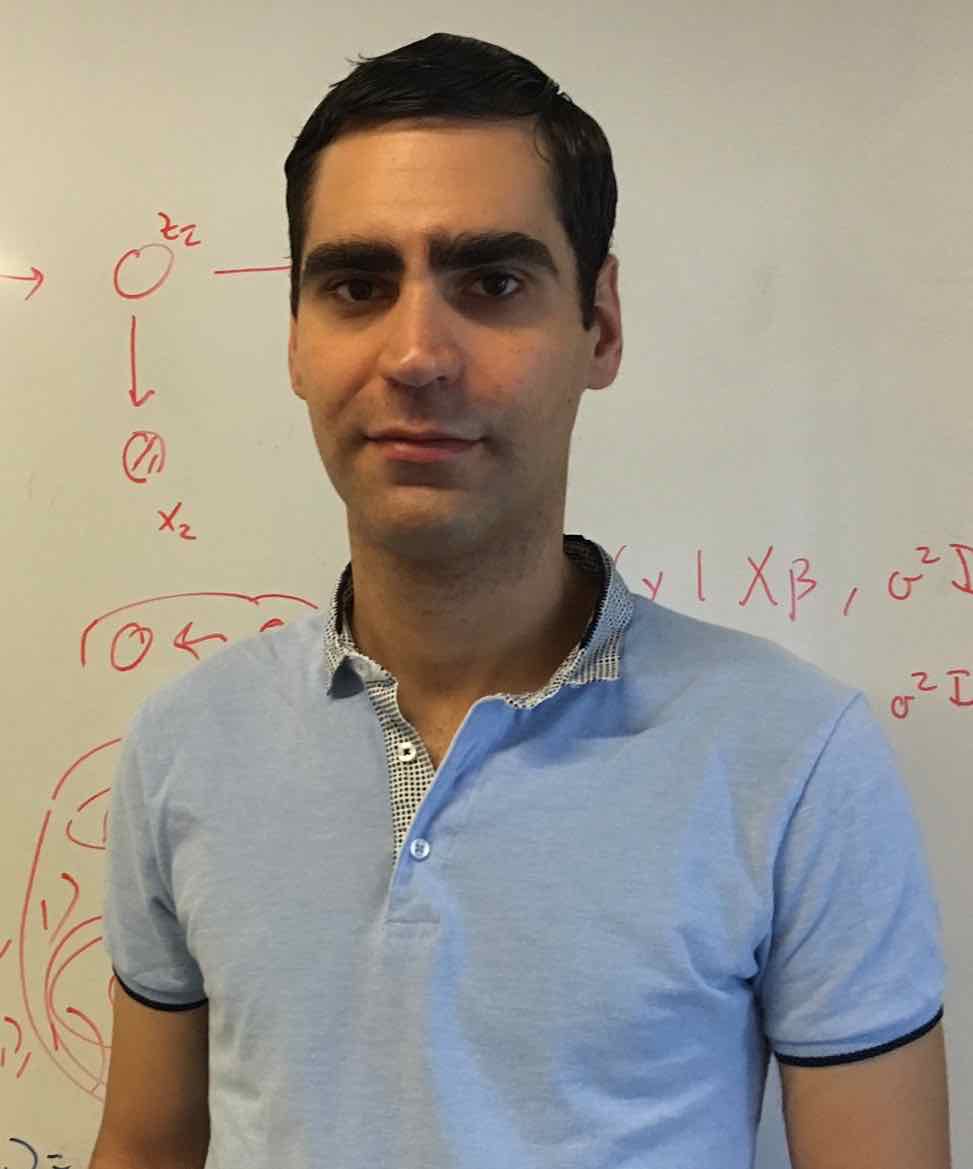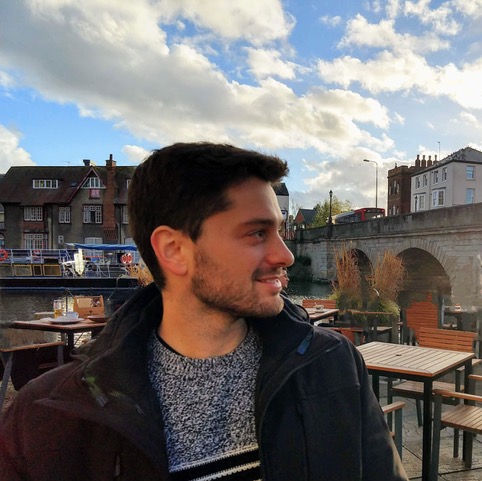Organizers

Bio
Francisco is a Research Scientist working at DeepMind in the Data Efficient and Bayesian Learning Team. His research is focused on statistical machine learning, specially probabilistic modeling, approximate inference, generative models, and applications of machine learning to signal processing, mathematics, and computer science. Before joining DeepMind, Francisco was a Postdoctoral Research Scientist in the Department of Computer Science at Columbia University and in the Engineering Department at the University of Cambridge, where he held a Marie-Sklodowska Curie fellowship in the context of the E.U. Horizon 2020 program. He completed his Ph.D. and M.Sc. from the University Carlos III in Madrid.

Bio
Jennifer G. Dy is a Full Professor at the Department of Electrical and Computer Engineering, Northeastern University, Boston, MA, where she first joined the faculty in 2002. She received her M.S. and Ph.D. in 1997 and 2001 respectively from the School of Electrical and Computer Engineering, Purdue University, West Lafayette, IN, and her B.S. degree from the Department of Electrical Engineering, University of the Philippines, in 1993. Her research spans both foundations in machine learning and its application to biomedical imaging, health, science and engineering, with research contributions in unsupervised learning, interpretable models, explainable AI, continual learning, dimensionality reduction, feature selection/sparse methods, learning from uncertain experts, active learning, Bayesian models, and deep representation learning. She is Director of AI Faculty at the Institute for Experiential AI, Director of the Machine Learning Lab and is a founding faculty member of the SPIRAL (Signal Processing, Imaging, Reasoning, and Learning) Center at Northeastern. She received an NSF Career award in 2004. She has served or is serving as Secretary for the ICML Board (formerly, International Machine Learning Society), associate editor/editorial board member for the Journal of Machine Learning Research, Machine Learning journal, IEEE Transactions on Pattern Analysis and Machine Intelligence, organizing and or …

Bio
Stephan Mandt is an Associate Professor of Computer Science and Statistics at the University of California, Irvine. Previously, he led the machine learning group at Disney Research in Pittsburgh and Los Angeles and held postdoctoral positions at Princeton and Columbia University. Stephan holds a Ph.D. in Theoretical Physics from the University of Cologne, where he received the German National Merit Scholarship. He is furthermore a recipient of the NSF CAREER Award, the UCI ICS Mid-Career Excellence in Research Award, the German Research Foundation's Mercator Fellowship, a Kavli Fellow of the U.S. National Academy of Sciences, a member of the ELLIS Society, and a former visiting researcher at Google Brain. His research is currently supported by NSF, DARPA, IARPA, DOE, Disney, Intel, and Qualcomm. Stephan is an Action Editor of the Journal of Machine Learning Research and Transaction on Machine Learning Research, held tutorials at NeurIPS, AAAI, and UAI, and regularly serves as an Area Chair for NeurIPS, ICML, AAAI, and ICLR. He currently serves as Program Chair for AISTATS 2024 and will continue to serve as General Chair for AISTATS 2025.

Bio
Miguel Ángel Fernández-Torres received the Audiovisual Systems Engineering degree, the Master degree in Multimedia and Communications and the PhD degree in Multimedia and Communications from Universidad Carlos III de Madrid, Spain, in 2013, 2014 and 2019, respectively. During the PhD period, his research was related to spatio-temporal visual attention modelling and understanding, applying both Bayesian networks and deep learning. After two years as a teaching assistant at Universidad Carlos III de Madrid, Spain, he works at present as a postdoctoral researcher in the ERC USMILE, H2020 XAIDA and ESA DeepExtremes projects, taking part in the Image and Signal Processing Group at the Universitat de València, Spain. His current research within the area of Machine Learning for Earth and Climate Sciences involves the design and understanding of explainable deep generative models and machine attention mechanisms to be deployed for anomaly and extreme event detection.
In addition to his work on visual attention, he has participated in other projects within the Computer Vision field, which includes image and video analysis, and medical image analysis and classification. He had also the opportunity to study at Technische Universität Wien, Vienna, Austria, during his Bachelor's degree, in 2013, and to do two research stays at …

Bio
Miguel Ángel Fernández-Torres received the Audiovisual Systems Engineering degree, the Master degree in Multimedia and Communications and the PhD degree in Multimedia and Communications from Universidad Carlos III de Madrid, Spain, in 2013, 2014 and 2019, respectively. During the PhD period, his research was related to spatio-temporal visual attention modelling and understanding, applying both Bayesian networks and deep learning. After two years as a teaching assistant at Universidad Carlos III de Madrid, Spain, he works at present as a postdoctoral researcher in the ERC USMILE, H2020 XAIDA and ESA DeepExtremes projects, taking part in the Image and Signal Processing Group at the Universitat de València, Spain. His current research within the area of Machine Learning for Earth and Climate Sciences involves the design and understanding of explainable deep generative models and machine attention mechanisms to be deployed for anomaly and extreme event detection.
In addition to his work on visual attention, he has participated in other projects within the Computer Vision field, which includes image and video analysis, and medical image analysis and classification. He had also the opportunity to study at Technische Universität Wien, Vienna, Austria, during his Bachelor's degree, in 2013, and to do two research stays at …
Bio
Sinead Williamson is an Assistant Professor of Statistics at the University of Texas at Austin, in the IROM Department and the Division of Statistics and Scientific Computation. She obtained her Ph.D. from the Computational and Biological Learning group at the University of Cambridge and spent two years as a postdoc in the SAILING laboratory at Carnegie Mellon University.

Bio
I'm Tomas Geffner, a PhD student at the University of Massachusetts, Amherst, working on probabilistic machine learning and deep learning. Prior to my PhD, I completed my Master's in Intelligent Systems at the University Pompeu Fabra in Barcelona, and my undergrad in Electrical Engineering at the University of Buenos Aires. In my free time, I enjoy playing tennis and exploring new food spots.
Bio
I am a PhD candidate in the ECE department at Northeastern University and part of Dr. Jennifer Dy’s Machine Learning Lab at the SPIRAL research center. I’m broadly interested in improving transparency in black-box prediction models, specifically in relation to interpretability and uncertainty quantification.